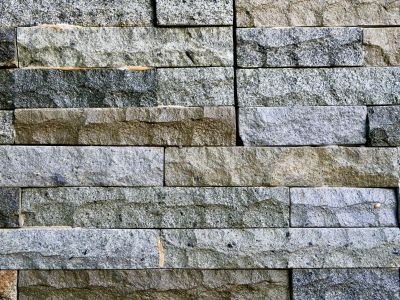Favorite Tools and Materials for Faux Stone Siding Installations
Explore trusted products that help you achieve professional-looking faux stone siding results effortlessly.
 Faux stone siding products provide an appealing way to enhance the aesthetic of various building exteriors without the need for traditional masonry work. These products are designed to mimic the appearance of real stone, offering a versatile and often easier-to-install alternative for homeowners and contractors alike. Faux stone siding can be used on residential facades, accent walls, fireplaces, and even outdoor features, adding texture and visual interest to any space.
Faux stone siding products provide an appealing way to enhance the aesthetic of various building exteriors without the need for traditional masonry work. These products are designed to mimic the appearance of real stone, offering a versatile and often easier-to-install alternative for homeowners and contractors alike. Faux stone siding can be used on residential facades, accent walls, fireplaces, and even outdoor features, adding texture and visual interest to any space.
Top Overall Option
Polyurethane Faux Stone Siding Panels
Polyurethane faux stone siding panels are known for their lightweight nature and ease of installation, making them a favored choice for many DIY enthusiasts and professionals. They offer a realistic stone appearance with textured surfaces that mimic natural stone closely. These panels are resistant to moisture and pests, providing durability for outdoor applications, and are simple to cut and shape for custom fitting. Their versatility allows for use on walls, fireplaces, and accent features, providing a quick transformation of exterior or interior spaces.
Types of Products For Faux Stone Siding Installs
Polyurethane Faux Stone Panels
Lightweight and easy to install, these panels offer a quick way to achieve a natural stone look for various applications.
Vinyl Faux Stone Siding
Made from durable vinyl, these siding options provide weather resistance and low maintenance for exterior walls.
Fiber Cement Faux Stone Panels
Combining strength and authenticity, fiber cement panels deliver a realistic stone appearance with added durability.
Molded Resin Faux Stone Cladding
Resin-based cladding offers detailed textures and lightweight handling for decorative applications.
Interlocking Faux Stone Bricks
Designed for seamless installation, these interlocking bricks provide a uniform stone façade with minimal effort.
Cast Concrete Faux Stone Panels
Heavy-duty panels made from cast concrete offer a traditional stone appearance with high durability for exterior use.
Foam Core Faux Stone Siding
Lightweight foam core panels are easy to handle and install, suitable for interior accents or light exterior use.
Textured Polypropylene Faux Stone
Polypropylene panels feature textured surfaces that mimic natural stone with added flexibility for curved surfaces.
Stone Veneer Sheets
Thin stone veneer sheets provide a natural stone look and are suitable for interior or exterior applications.
Decorative Faux Stone Wall Tiles
Wall tiles designed to resemble stone are perfect for accent walls and interior décor projects.
Popular Choices
Widely used for their lightweight and realistic appearance, these panels are popular for quick transformations.
Known for weather resistance and ease of maintenance, vinyl options are common for outdoor applications.
Designed for straightforward installation, these interlocking bricks are frequently chosen for DIY projects.
Offering a traditional look with durability, concrete panels are often selected for exterior façades.
Resin-based panels are appreciated for detailed textures and lightweight handling.
Lightweight and easy to install, foam core options are favored for interior accents and quick upgrades.
Flexible and textured, these panels are trending for creative and curved surface applications.
Thin veneer sheets are popular for their natural look and ease of application on various surfaces.
These tiles are frequently used for interior decorative walls and feature accent pieces.
The variety of faux stone siding options available allows for customization to match different architectural styles and personal preferences. Materials range from lightweight polymer composites to molded polyurethane, each offering different benefits in terms of weight, durability, and ease of handling. Installation methods typically include adhesive bonding, interlocking panels, or mechanical fastening, making them accessible for DIY projects as well as professional applications.
When selecting products for faux stone siding installation, it is important to consider factors such as material compatibility with existing surfaces, weather resistance, and the overall aesthetic effect desired. Proper preparation of the substrate and adherence to manufacturer instructions are essential to achieving a satisfactory finish. Maintenance requirements are generally minimal, with occasional cleaning to preserve the appearance.
Overall, faux stone siding products serve as a practical solution for those seeking to add a natural stone look to their property while potentially reducing installation time and costs. With a wide range of options, styles, and finishes, these products continue to be a popular choice for enhancing curb appeal and architectural interest in various projects.
Key Buying Considerations
- Material durability and weather resistance for outdoor use.
- Weight of the product and ease of handling during installation.
- Compatibility with existing surfaces and wall structures.
- Authenticity of the stone appearance and texture details.
- Ease of installation, including whether tools or special adhesives are required.
- Maintenance requirements and cleaning frequency.
- Fire resistance and safety ratings if applicable.
- UV resistance for outdoor products to prevent fading over time.
- Availability of matching accessories such as corner pieces or trims.
- Cost considerations and overall value relative to the project scope.
- Compatibility with existing architectural styles and design goals.
- Manufacturer reputation and product reviews for reliability.
- Warranty or guarantee offered with the product.
- Environmental conditions where the product will be installed, such as exposure to moisture or extreme temperatures.
- Potential for customization or color matching with other exterior elements.
